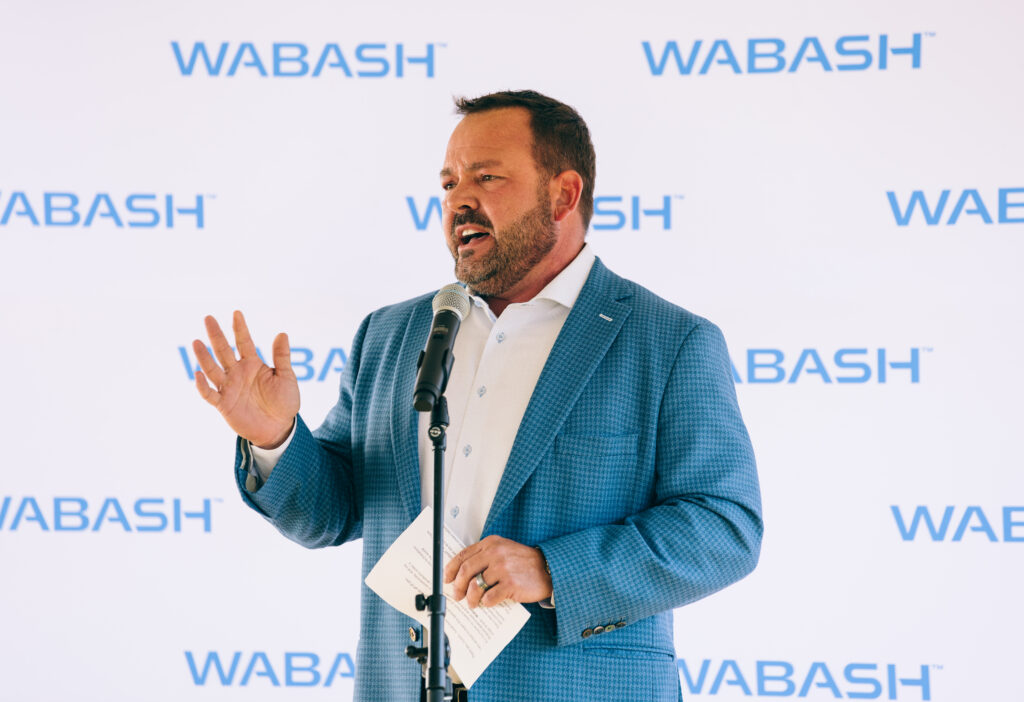Wabash CEO on Redefining Failure and Embracing Setbacks
By Brent Yeagy
Failure. No one likes it; no one wants to experience it, yet, no one is immune from it.
For leaders, admitting failure can be extremely difficult if they’ve bought into the fallacy that leaders should have all the answers, always be right and be infallible in their decision-making.
That kind of leadership is not going to get you very far. As leaders, our visions and dreams of what is possible should be big. We must lay out the strategies and pathways to make them real and actionable. If we are pushing ourselves and our organizations to change for the better, setbacks, obstacles and failures are to be expected.
To quote Henry Ford, “Failure is simply the opportunity to begin again, this time more intelligently.”
We must accept that acting on a vision of purposeful change is a messy place. Instead of having the right answers, leaders should bring optimism to fuel the dream and skepticism to drive the deliberate process of experimentation, or trial and error, that helps us—and others— find the path to success.
I’ve experienced my fair share of failures.
In college, I walked onto the Purdue University football team after turning down an Air Force Academy appointment, only to face a career-ending injury shortly thereafter. I also changed my major four times during my first four semesters and dropped out of school twice. When beginning my job search after college, I submitted dozens of cover letters that went unanswered. During my first interview, the hiring manager told me, “You don’t have the attitude of a leader.”
What I didn’t know at the time was that all these setbacks were setting me on a different path to success. Although each one hurt in the moment, I had the tenacity to keep going and the growth mindset to learn something from each experience.
After dropping out of Purdue for the first time, I joined the U.S. Navy and went on to become a nuclear plant engineering officer. Following my service, I re-enrolled at Purdue, where I received my bachelor’s and master’s degrees. I decided to continue my education at Purdue after getting accepted into a PhD program but later dropped out a second time to pursue an opportunity to serve as a manufacturing leader at Wabash, which led to my current role as president and chief executive officer of the company.
Had I let my failures define me and stop my journey, I would not be in the position I am in today. That’s why we must redefine failure instead of letting it define us. Failing means choosing to take on a challenge outside of your comfort zone and embracing the uncertainty that comes with it.
The best leaders understand that failure is not a reflection of them or their team but simply the result of a process followed, and an idea explored. They seek to understand the types of failure involved and the mechanisms that led to the undesirable outcome for learning purposes.
When we view failure through a lens of discovery and objectivity, we’re able to separate emotion and personal biases from the outcome. And that’s what keeps us grounded in the purpose, vision and optimism that allows for constructive learning.
Whether you’re navigating a personal life change, taking a business risk or leading a team through uncharted territory, it’s important to recognize that failure is a required output of growth. The sooner you’re able to embrace setbacks as an opportunity to improve, the more prepared you will be to lead yourself and others through the uncertainty of failure to achieve success.



